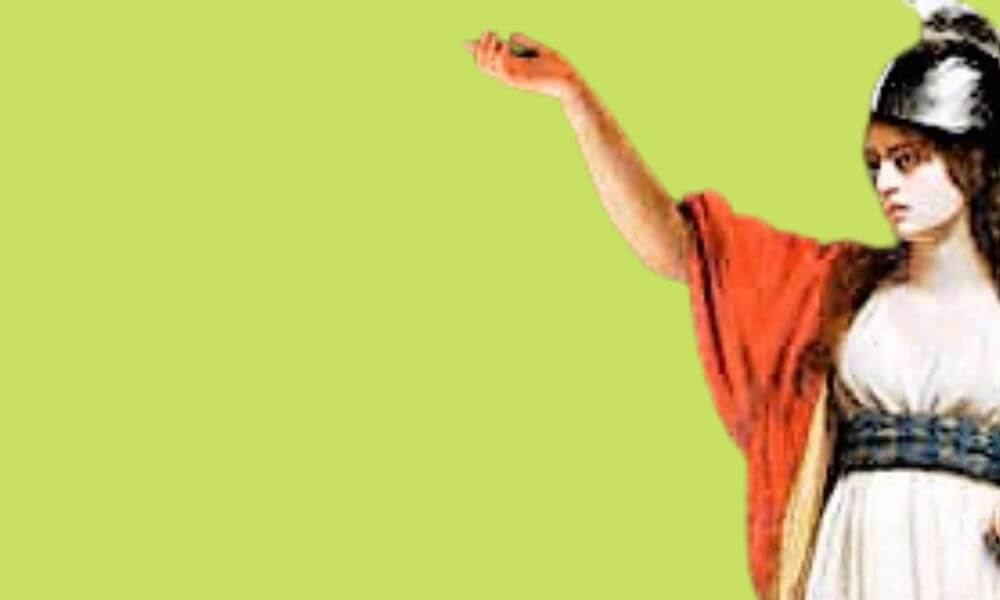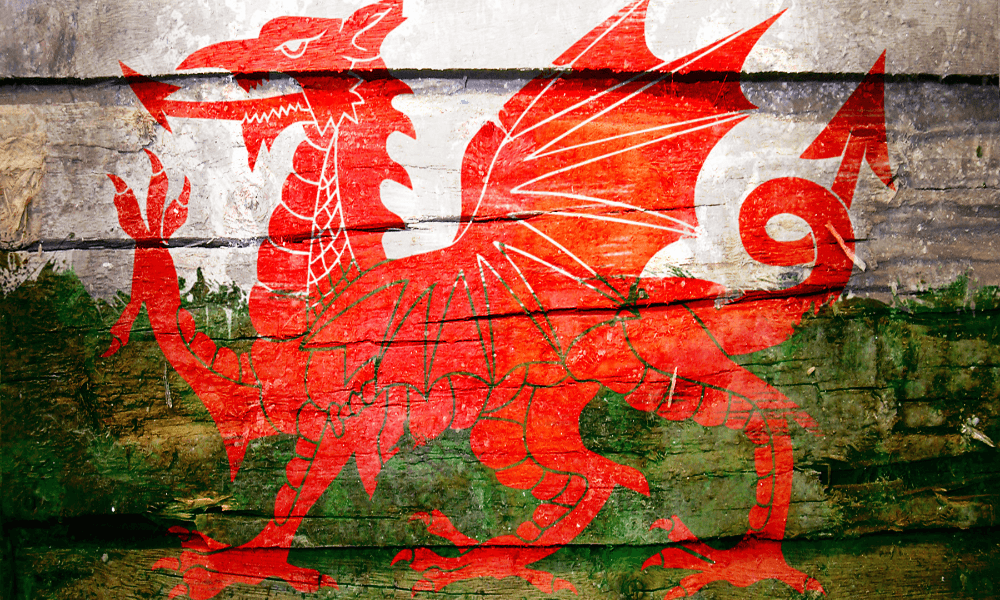Boudicca would have spoken an indigenous Celtic dialect, its closest surviving relative being the Welsh language. Unfortunately, we have no record telling us the language she spoke. She was a member of the Iceni tribe who lived in the East of England, particularly East Anglia, but many forms of Celtic were spoken.
Boudicca and her people had no written language, so they leave us no records of their own to tell us about the language they spoke.
We can only go off external sources, like the Romans.
Their language was probably Brythonic Celtic, of which there are living descendants today.
Let’s find out more.

Was Boudicca Welsh?

No, Boudicca was not Welsh, in the sense that she did not come from the area of Britain that is now Wales.
While England and Wales were virtually always distinct from one another, at this time individuals in all likelihood would have identified more closely with their tribe than their nationality. They were all just Britons.
But it is for this very reason that many in Wales have attempted to claim her as a Welsh heroine.
The Britons of England were ultimately supplanted by Germanic tribes.
The Welsh, on the other hand, stood fast, and their Celtic roots endured.
Modern Welsh people claim that at Boudicca’s time, there were no “English” people, only Celtic people.
Thus, because Wales is still Celtic to this day, in one way or another, the English had no claim to her, as she was a Celt like the Welsh.
This is all simply a matter of perspective, though.
Ethnically, she may be more similar to Welsh people today, but she lived on the opposite side of the country to where Wales is.
She was an East Anglian queen, Celtic certainly but not Welsh in any useful sense.
All of this, of course, has a big influence on what language she spoke—was she Celtic or Germanic?
Was Boudicca Celtic or Germanic?
Boudicca was most assuredly Celtic.
There is no evidence at all that any Germanic peoples made significant settlement in England before the much later incursions of the Angles, Saxons and Jutes onto the British Isles.
Boudicca lived in the 1st Century, and these incursions wouldn’t happen until around the 5th Century.
As I said, Boudicca was part of the Iceni tribe.
The Iceni, also known as the Eceni, were an Iron Age Celtic tribe inhabiting what is today Norfolk, Suffolk and parts of Cambridgeshire.
There is no debate in the academic community that Boudicca was Celtic, though some have attempted to put forward the position that she was Germanic in some way.
Culturally, the Celtic and Germanic peoples were very distinct—but they also were linguistically, too.
What language did the Iceni speak?
In asking what language Boudicca spoke, we are asking what language her entire tribe spoke.
The short answer is we do not know the precise nature of the language she and the Iceni spoke.
However, we have a lot of information to go off.
One of the best ways we can get an insight into ancient languages unrecorded by those who spoke them is the historical treatises of other societies.
The Romans wrote extensively about those they conquered.
Particularly, they would record the names of rulers, as well as the names of places which the locals used.
Boudicca’s husband was named Prasutagus, as far as the Roman historian Tacitus suggests.
However, coins have been discovered inscribed with the name Esuprastus, which some believe to be Prasutagus’s real name.
Some believe Esuprastus to be a compound name formed from the name Esus, a Brittonic and Gaulic deity known from a couple of monuments and brief mentions in histories.
Similarly, Boudicca’s name supposedly is derived from the proto-Gaelic word boudeg, which means victory.
All of this points towards the Iceni speaking a Brythonic Celtic language, which would, as I said, be most similar to modern day Welsh or even Cornish and Brittonic.
Boudicca and her people were Celtic through and through.
So, even only referring to the names used in Roman sources, and not touching the actual content of those sources, we can identify Boudicca’s language with modern day descendants and relatives.
But do we have any knowledge of what Boudicca herself said?
What do we know Boudicca said?
We don’t know with any degree of certainty anything that Boudicca herself actually said.
She is famous for many speeches she is supposed to have given to her people before battles, but all of these are recorded by Roman sources that were not there to witness them.
One famous speech which is attributed to her by Tacitus claims she spoke of things like freedom and revenge against the Romans.
Undoubtedly as a leader we can surmise she would have given such speeches to rouse her people to revolt, but we can scarcely guess about their actual content.
Even if we were to take Tacitus’s account at face value, he obviously writes in Latin, and so it would not give us any greater insight into the language she or her tribe spoke.
Ancient languages which leave no written record are a profound puzzle to modern scholars.
Place names and the names of rulers recorded by foreign contemporaries give us a good insight into the problem, but there’s still simply far too much that we don’t know to say much for certain.
Boudicca was an Iceni Celt, and probably spoke Brythonic.
More in Languages
- What Language Did Abraham Speak? (Explained!)
- What Language Did Adam And Eve Speak? (Answered!)
- What Language Did Albert Einstein Speak? (Wunderbar!)
- What Language Did Alexander The Great Speak? (Answered!)
- What Language Did Anne Frank Speak? (It May Surprise You!)
- What Language Did Beethoven Speak? (Revealed!)
- What Language Did Boudicca Speak? (Explained!)
- What Language Did Bruce Lee Speak? (Answered!)
- What Language Did Catherine The Great Speak? (Answered!)
- What Language Did Cavemen Speak? (Explained!)
- What Language Did Christopher Columbus Speak? (Answered!)
- What Language Did Cleopatra Speak? (Explained!)
- What Language Did George Washington Speak? (Revealed!)
- What Language Did Jesus Speak? (Answered!)
- What Language Did Julius Caesar Speak? (Find Out!)
- What Language Did Moses Speak? (Answered!)
- What Language Did Mozart Speak? (Answered!)
- What Language Did Noah Speak? (Explained!)
- What Language Did The Anglo Saxons Speak? (Answered!)
- What Language Did The Aztecs Speak? (Answered!)
- What Language Did The Buddha Speak? (Explained!)
- What Language Did The Vikings Speak? (Answered!)
- What Languages Are Spoken In Afghanistan? (Find Out!)
- What Languages Are Spoken In Africa? (Revealed!)
- What Languages Are Spoken In Albania? (Answered!)
- What Languages Are Spoken In America? (Answered!)
- What Languages Are Spoken In Antwerp? (Find Out)
- What Languages Are Spoken In Argentina? (Revealed!)
- What Languages Are Spoken In Australia? (Find Out!)
- What Languages Are Spoken In Austria? (Answered!)
- What Languages Are Spoken In Bangladesh? (Revealed!)
- What Languages Are Spoken In Barcelona? (Answered!)
- What Languages Are Spoken In Belgium? (Revealed!)
- What Languages Are Spoken In Bolivia? (Answered!)
- What Languages Are Spoken In Bosnia? (Answered!)
- What Languages Are Spoken In Brazil? (Find Out!)
- What Languages Are Spoken In Budapest? (Revealed!)
- What Languages Are Spoken In China? (Answered!)
- What Languages Are Spoken In Colombia? (Revealed!)
- What Languages Are Spoken In Croatia? (Answered!)
- What Languages Are Spoken In Cuba? (Revealed!)
- What Languages Are Spoken In Cyprus? (Revealed!)
- What Languages Are Spoken In Denmark? (Find Out!)
- What Languages Are Spoken In Djibouti? (Answered!)
- What Languages Are Spoken In Ecuador? (Find Out!)
- What Languages Are Spoken In Egypt? (Answered!)
- What Languages Are Spoken In El Salvador? (Answered!)
- What Languages Are Spoken In England? (Find Out!)
- What Languages Are Spoken In Eritrea? (Helpful Content!)
- What Languages Are Spoken In Estonia? (Revealed!)
- What Languages Are Spoken In Ethiopia? (Answered!)
- What Languages Are Spoken In Fiji? (Revealed!)
- What Languages Are Spoken In Finland? (Find Out!)
- What Languages Are Spoken In Germany? (Answered!)
- What Languages Are Spoken In Japan? (Answered!)
- What Languages Are Spoken In Morocco? (Answered!)
- What Languages Are Spoken In South Africa? (Answered!)

